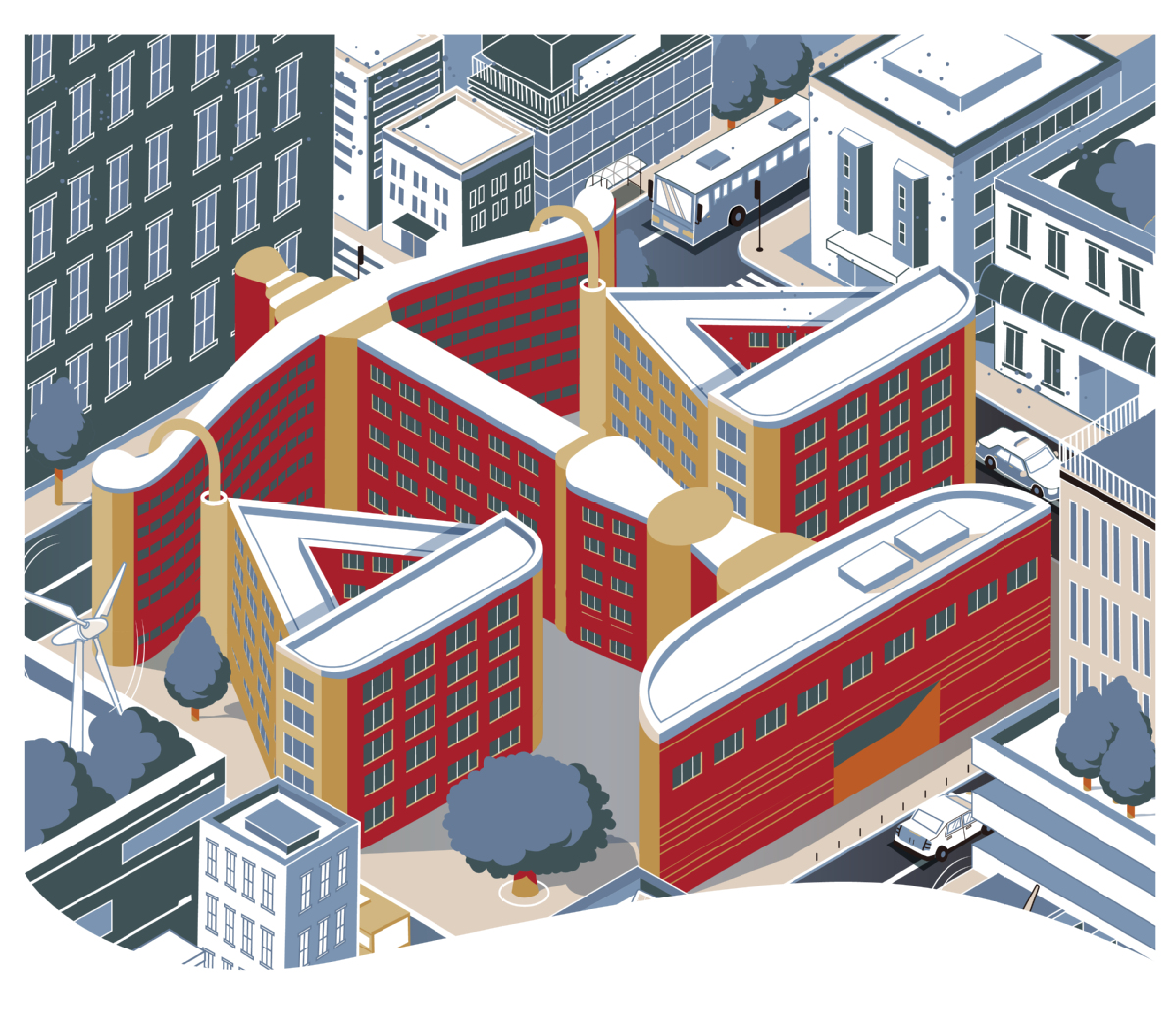Govt committed to solving housing problems


Addressing the housing problem in major cities and developing the housing rental market are one of the eight key objectives of the central authorities for 2021, which will set the tone for the overall development of the real estate sector. The importance attached to housing by the Central Economic Work Conference, which was held in December, is the most elaborate guideline for the property sector since 2016.
In July 2017, the Guangzhou city government issued a plan to accelerate the development of the housing rental market, which for the first time stated that, "tenants enjoy the same rights as home buyers". More important, it emphasized that children of qualified tenants will enjoy the same right as those of homeowners for getting enrolled in a nearby school for the nine-year compulsory education.
The clause attracted media attention again when the annual Central Economic Work Conference said the country should strive to ensure that tenants and their children enjoy the same level of public services as homeowners and their kids. The central government is focusing on housing market development to facilitate high-quality development and strengthen "internal circulation" (domestic economy), which is one part of the "dual circulation" development paradigm that is based on internal circulation and aims to integrate the domestic economy with the global economy ("external circulation").
The central authorities' emphasis on equal rights for tenants and homeowners is significant for three reasons.
First, the plan is necessary to make the leasing market more attractive, encourage both housing purchase and housing rentals, and promote the healthy development of the real estate sector. China is facing an aging population problem, and despite the fast rate of urbanization, the rapid development period of the real estate sector has passed. As such, a right supply-demand balance, steady industrial development and standardization of the leasing market are required to ensure healthy internal circulation.
Second, if tenants enjoy the same services as homeowners, their sense of gain and security will increase, which will encourage them to work without worrying about housing problems. This in turn will prompt them-or people in general-to save less in the hope of buying a home in the future and spend more, which will eventually boost consumption. And consumption growth is important to domestic growth; the higher the increase in consumption the better the internal circulation.
Granting tenants the same rights as homeowners can also help develop the leasing market, which is important to solve the housing problem in major cities.
And third, taking measures to ensure tenants enjoy the same rights as homeowners is conducive to promoting social equality. One of the most important elements of fairness and justice is equal treatment of people. Since all citizens have equal rights to enjoy the same public services, including social welfare, healthcare, nine-year compulsory education for their children, and pension, there should be no discrimination against those leasing out their apartments. Only when the legitimate rights and interests of all citizens are safeguarded can a fairer and more just society be built.
To ensure the government's efforts bear fruit, however, public services should be provided for people directly, without the involvement of the property market. This can be attributed to the imbalance between public services and resources, and because quality public services can be availed of only after paying for them.
Yet that does not mean tenants cannot have the same rights as homeowners, because despite such an imbalance in developed countries, tenants enjoy the same rights as homeowners. In China, however, thanks to the regulations on land-use rights, home purchase and public services are bound together, resulting in high housing and land prices, which is not conducive to fairness and justice, and compels people to spend a major part of their income to buy an apartment in order to enjoy quality public services.
As the Central Economic Work Conference reiterated, "we have to uphold the principle that housing is for living in, not speculation", and implement policies in accordance with each city's condition, as the property market is heading for the direction of stabilized and healthy development".
Fortunately, many local governments are making efforts to solve the problem by separating most public services from homeownership, with fewer and fewer local governments forcing people, albeit indirectly, to purchase a house in order to become permanent residents.
The biggest problem now is that even registered tenants still find it very difficult to get their children admitted to a school near their residence or in the extended neighborhood. And only when the children of such people have equal access to education can the situation improve.
Yet it is risky to grant the same rights to tenants before the housing system reaches maturity, because some people rent houses only to get their children admitted to "good schools" in certain neighborhoods.
To prevent such a scenario, the government could consider introducing certain strict rules. For example, a person should have lived in a leased or rented home for more than six months to be eligible to get his/her children enrolled in a neighborhood school or access quality public services-and that house should be his/her only one in the city, and community members need to confirm that he/she has been actually living in the house for at least six months.
The government can also ensure that tenants enjoy the same rights as homeowners by improving cooperation between different departments and society.
The author is a professor at the School of International and Public Affairs, Jiao Tong University, Shanghai.


































